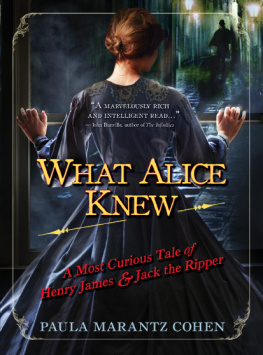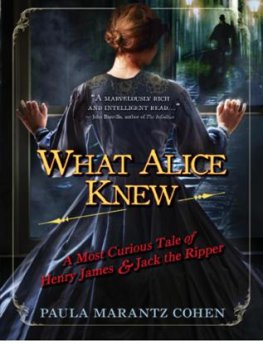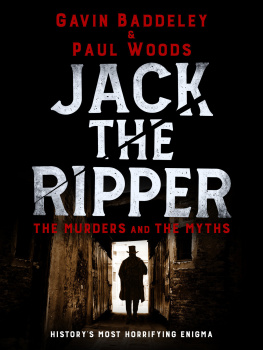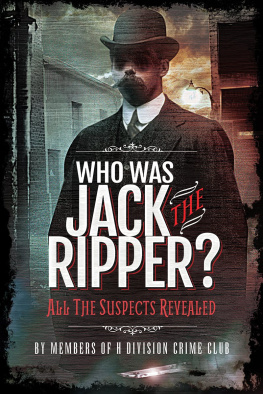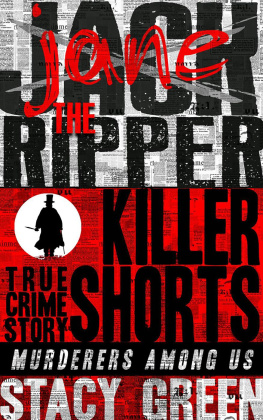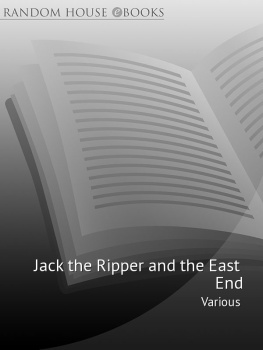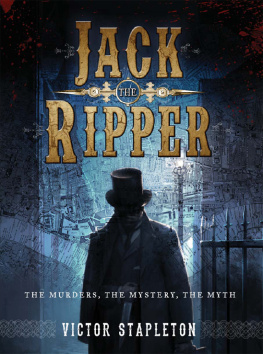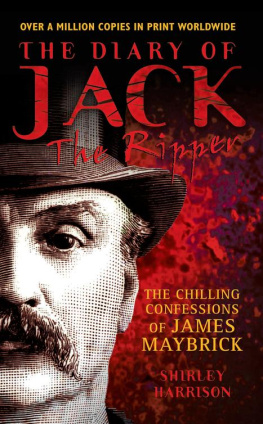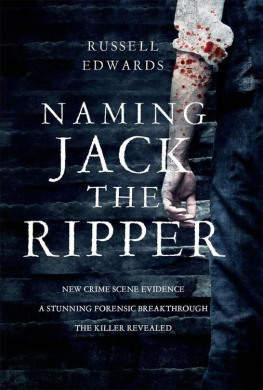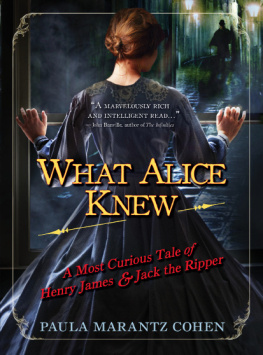

Copyright 2010 by Paula Marantz Cohen
Cover and internal design 2010 by Sourcebooks, Inc.
Cover design by John Hamilton
Cover photography by Harper Point
Cover images Cloudniners/iStockphoto.com; risamay/iStockphoto.com; kparis/iStockphoto.com; sorsillo/iStockphoto.com; hartcreations/iStockphoto.com; jacobmoisan/iStockphoto.com; WinterWitch/iStockphoto.com
Sourcebooks and the colophon are registered trademarks of Sourcebooks, Inc.
All rights reserved. No part of this book may be reproduced in any form or by any electronic or mechanical means including information storage and retrieval systemsexcept in the case of brief quotations embodied in critical articles or reviewswithout permission in writing from its publisher, Sourcebooks, Inc.
The characters and events portrayed in this book are fictitious and used fictitiously. Apart from well-known historical figures, any similarity to real persons, living or dead, is purely coincidental and not intended by the author.
All brand names and product names used in this book are trademarks, registered trademarks, or trade names of their respective holders. Sourcebooks, Inc., is not associated with any product or vendor in this book.
Published by Sourcebooks Landmark, an imprint of Sourcebooks, Inc.
P.O. Box 4410, Naperville, Illinois 60567-4410
(630) 961-3900
Fax: (630) 961-2168
www.sourcebooks.com
Library of Congress Cataloging-in-Publication Data
Cohen, Paula Marantz
What Alice knew : a most curious tale of Henry James and Jack the Ripper / Paula Marantz Cohen.
p. cm.
1. James, Henry, 1843-1916Fiction. 2. James, Alice, 1848-1892Fiction. 3. James, William, 1842-1910Fiction. 4. Jack, the RipperFiction. 5. Serial murder investigationFiction. 6. London (England)Fiction. I. Title.
PS3603.O372W47 2010
813.6dc22
2010017242
Table of Contents
To Alan,
my first story man
My thanks to the following people who offered background, ideas, or editing help with the manuscript: Simeon Amon, Victoria Amon, Rosetta Marantz Cohen, Maria Esche, Michael Harris-Peyton, Peter Lynch, Neeti Madan, and Jean-Michel Rabat.
I owe a special debt of gratitude to my husband, Alan Penziner, and to my children, Sam and Kate Penziner, who provided useful comments and unfailing, if sometimes exasperated, support.
I wrote this book in order to bring to life historical characters and events that I have come to know through my reading. But as this is a work of fiction, imaginative material has necessarily been added and factual material altered to accommodate the plot.
London. 1888.
Henry James was drunk.
The room where he was dining looked familiar, but he could not place it. There was an oak sideboard, elaborately carved, and a cupboard containing a collection of fine porcelains. The plate was bone china, the silver heavy and apparently old. There was a landscape (was it Corot?) near the door, a set of prints (Rowlandson?) on the side wall, and a portrait by someone of talent over the mantel. It was a good house, though how good was a matter of whether the portrait was by van Dyck of an esteemed ancestor or by Sargent of a more contemporary personage (he was too bleary-eyed to look), and whether the silver had been passed down or purchased secondhand.
Henry was seated at a large, well-appointed table at which he vaguely recognized some of the guests. Mrs. Drummond was to his left, and Lady Dalrymple to his right (unless it was the other way around); Oscar Wilde was gesticulating at the far end; and across was Edmund Gosse, if it was Gosse, bent over his soup. There were others he was certain he knew, except he could not summon up their names. Not that it mattered. Real places and people were the germs that fertilized his novels, but a certain level of distractedness (helped by a certain quantity of wine) left an opening for the imagination.
What do you think, Mr. James? asked the woman to his leftLady Dalrymple or Mrs. Drummondthe face blurred in his vision. He had almost finished his soup, a very nice beef bouillon, and would have liked to answer the lady (whoever she was) if only he knew what she was talking about.
Fortunately they were interrupted by Wilde, engaged in one of his familiar critiques of someone who wasnt there.
I cant say I think much of Stevensons work, Wilde pronounced. Its thin. The stage adaptation of Jekyll and Hyde owes its success to the actors; the book lacks depth and amplification. If the man werent so ill, I would be harsher. And if he were dead, which they say he will be in a year, I would be more generous.
Dead? Whos dead? shouted an elderly gentleman across the table.
No one, yet, said Wilde, but in time, all of us. Though some sooner than others, he added, sotto voce, to the handsome young man seated next to him.
Henry pushed away his soup. Secretly he agreed with Wilde about Stevenson. How was it that Louis had gotten his Jekyll and Hyde produced for the stage? Henrys lifelong dream was to have his own work adapted for performance, but when he approached the theater people, they said his novels were not dramatic. This was nonsense; they were extremely dramatic if one read them carefully.
Stevensons tale chilled my blood, asserted one of the pretty, more impressionable women.
Then your blood, exquisite though it is, is easily chilled, madam, chided Wilde. Lopping a man in half so that the animal is turned loose is an obvious sort of conceit and entirely unrealistic. Much better if the monster doesnt look like a monster at all, but like an angel, the point being that the worst atrocities are committed not by animals but by men, and often men of apparent refinement.
A stout American woman in heavy brocade looked up from her soup. I can always tell a person by his face, she announced, casting a supercilious glance around the table.
Henry winced. Although he had lived in London for years, he still took the arrogant stupidity of his countrymen personally. The stout American woman was married to an oil man or a lumber man, referred to as though they were made of these substances, which perhaps they were. One never saw the men, only their wives, who were everywhere, elbowing their way into the best houses.
I pride myself on my ability to read faces, the American woman continued, raising her chin to reveal a set of emeralds whose vulgar splendor caused Henry to avert his gaze. I have only to look in a persons eyes, and I know his character. She cast a flirtatious glance in the direction of the handsome young man sitting next to Wilde, who raised an eyebrow back.
I question your infallibility, madam, countered Wilde. The best actors are always the best villains. And evil often comes in seductive guises. Think of Duessa in Spensers Faerie Queene , her monstrous nether parts hidden under beautiful drapery.
Nether partswhere? demanded the elderly gentleman, excitedly.
I have no idea what you are referring to, Mr. Wilde. The American woman shrugged. But I am certain that it would not change my mind.
Henry drained his glass. There it was: the most dire attribute of the new money was its complacency. It wore its ignorance like a badge of honor.
What do you think, Mr. James? asked the woman to his left. He wished she would leave him alone, though she was to be commended for valuing his opinion. He took a sip from the glass in front of him that had been refilled. I dont believe in the existence of evil per se . He spoke slowly, taking care not to slur his words. I believe that men, and womenhe nodded politely to the womanmay be prompted to commit acts of thoughtlessness, even cruelty, in pursuit of some greatly desired object, and that repetition of such acts, given the persistence of certain influences, may create a kind of reflex of mind. The act, in short, grows habitual; the conscience dulls. One might call this the evolution of a depraved personality. But that would be an oversimplification.
Next page
